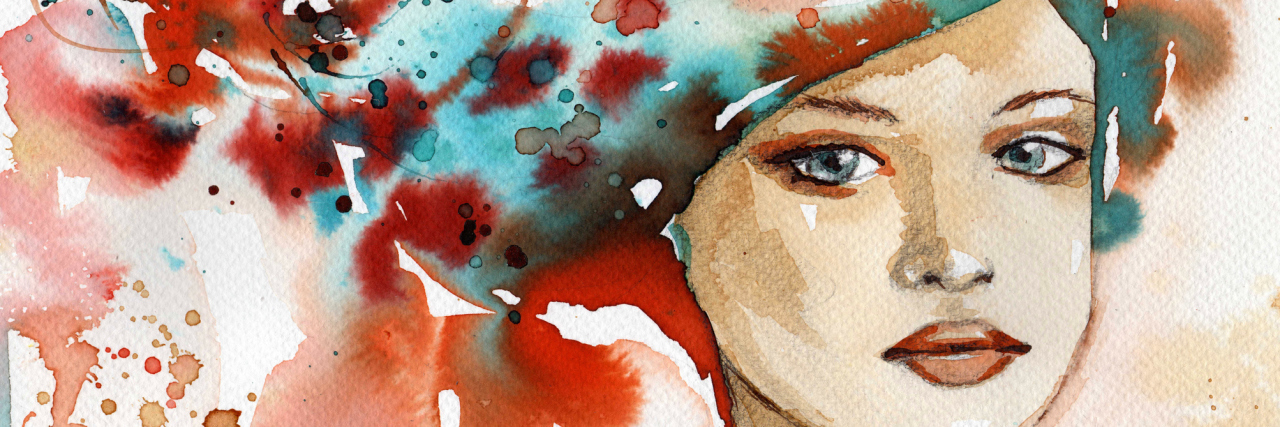Editor’s note: If you experience suicidal thoughts or have lost someone to suicide, the following post could be potentially triggering. You can contact the Crisis Text Line by texting “START” to 741-741.
When I was sick, I thought waking up every day wishing to be dead was something everyone else experienced. For months, I pictured my death and visualized ways to kill myself — and I thought it was a perfectly “normal” thing to do.
Things were bad. There’s no other way to put it. They were so bad, I can’t even tell you how bad they were. Words can’t describe how awful those months were.
In the midst of my illness, I couldn’t see or understand the potential consequences of my illness. I didn’t understand why my parents worried constantly, or why my friends kept such close tabs on me. I didn’t understand the concerned expression on my therapist’s face, and I didn’t get why the doctors in the ER kept saying I needed to be hospitalized. I didn’t get why those around me made such a fuss.
In reality, I was so sick I couldn’t even see how bad it was.
In the weeks leading up to my hospitalizations, not a day went by without my friends or family checking up on me. At times, it felt like they were babysitting me. Meanwhile, I thought being depressed and suicidal was not a big deal at all. I thought I was fine, and got angry when those around me replied that no, I wasn’t.
How could they say that, when they weren’t the ones living in my skin? Shouldn’t I have been the one to trust my own judgment? Didn’t I know myself better than anyone else?
When one doctor in the ER asked me quantify my suicidal thoughts on a scale from 1 to 10, I told her my suicidal ideation wasn’t a big deal. I told her I had suicidal thoughts for what seemed like forever. Three to four out of 10 I said. This doctor replied with, “No Daphnée, the fact you have thoughts alone — that’s enough to be considered suicidal ideation. The fact you can visualize it… we’re talking eight or nine out of 10.”
I disagreed with her.
At that moment, I was so deep in denial, and my refusal to accept reality was my way of coping.
Like my therapist once said, sometimes when we’re undergoing a traumatic experience, minimizing the pain and downplaying the amount of struggle can serve as a coping mechanism. Normalizing allows us to get through the trauma. It’s only when we do look back that we realize how bad the situation was, and how severe the circumstances were.
The truth is, when I was sick, my symptoms weren’t symptoms to me. They were what they were and I didn’t think much of them. I didn’t realize how powerful and damaging they were until the moment they started to lift. Only then did I realize how much they had kept me feeling trapped and suffocated.
When my symptoms went from being severe to moderate, then became mild and almost nonexistent, I felt free. I felt liberated for the first time in months, and I felt like the fog that had blurred my life vision had finally evaporated.
The thing to remember about mood disorders and chronic illnesses like mine is that they change your normal, your baseline. I got so used to being sick that I started to wonder if I was ever sick at all.
Personally, it is only when I regained my health that I realized how much I had lost and how many good days had been stolen away from me. Even now, living without chronic suicidal intent is a strange experience, and feels foreign to me. I feel it should be the other way around.
Lastly, I want to point out that mood episodes are so much more than just a few bad days. In my experience, my mental illness affected so much more than just my state of mind. It affected my relationships, my values and beliefs, as well as my physical state of well-being.
These days, it’s true that I am feeling much better. But I also feel much more unsettled and anxious than before.
Not feeling depressed all the time genuinely confuses the hell out of me.
It almost concerns me.
I’m so used to feeling a certain way that when I don’t feel suicidal 24/7, I have to take a step back like, Wait, what?
What’s going on? What is happening to me?
Some days, I feel like I’m dreaming. Everything is surreal and I’m scared I’ll wake up.
Some days, I feel like it’s too good to be true, and ask myself, “Where’s the catch?” Like I’m convinced I’ll wake up tomorrow and everything will have changed, because life couldn’t possibly be that good, right?
Most days, it feels like my world has been turned upside down. Maybe it’s not like this for everybody, but for me, it’s hard to just feel OK — or even happy.
If you or someone you know needs help, visit our suicide prevention resources page.
If you need support right now, call the National Suicide Prevention Lifeline at 1-800-273-8255 or text “START” to 741-741.
We want to hear your story. Become a Mighty contributor here.
Thinkstock photo via bruniewska.

